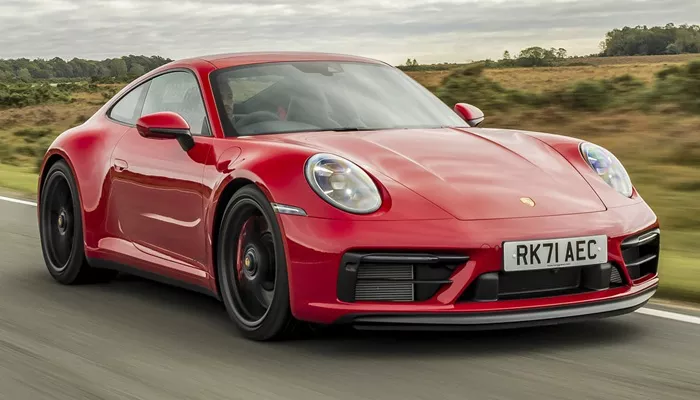The Porsche 911 is one of the most legendary sports cars in automotive history. Known for its distinctive design, remarkable performance, and engineering precision, the 911 has become a symbol of excellence. First introduced in 1964, it continues to evolve while maintaining its heritage. Porsche has refined this model across decades without losing the essence of what made it iconic.
The Origin and Evolution of the Porsche 911
The 911 was developed as a successor to the Porsche 356. Ferdinand “Butzi” Porsche, grandson of the company’s founder, designed the 911 with a focus on sleek aesthetics and superior handling. The car debuted at the 1963 Frankfurt Motor Show and entered production in 1964.
The first-generation 911 featured a rear-mounted 2.0-liter flat-six engine. It delivered around 130 horsepower and quickly gained popularity for its agility and speed. Over time, Porsche introduced improvements in performance, safety, and design, resulting in multiple iterations:
- 911 Classic (1964–1989)
- 964 Series (1989–1994)
- 993 Series (1995–1998) – the last air-cooled 911
- 996 Series (1999–2004) – first with water-cooled engines
- 997 Series (2005–2012)
- 991 Series (2012–2019)
- 992 Series (2019–present)
Each generation introduced technical advancements, including turbocharging, advanced aerodynamics, and digital driving aids, keeping the 911 at the forefront of sports cars models.
Key Design Characteristics
The Porsche 911 is instantly recognizable. Its signature silhouette has changed very little over the years. It features:
- Rounded headlights
- Sloping rear roofline
- Wide wheel arches
- Low center of gravity
The engine is mounted at the rear, providing excellent traction. The body materials have shifted toward lightweight aluminum and high-strength steel to improve performance and efficiency. Inside, the 911 balances luxury and sportiness. It includes leather upholstery, ergonomic seating, digital displays, and advanced infotainment systems.
Powertrain and Engine Options
The 911 is known for its rear-mounted flat-six engines. The latest models offer various configurations:
- 911 Carrera: 3.0-liter twin-turbo flat-six, 379–443 hp
- 911 Turbo/Turbo S: 3.8-liter twin-turbo flat-six, 572–640 hp
- 911 GT3: 4.0-liter naturally aspirated flat-six, 502 hp
- 911 Dakar: Off-road-capable variant with unique suspension
The 911 comes with either a 7-speed manual or an 8-speed PDK dual-clutch automatic transmission. Most models are rear-wheel drive, although many offer Porsche’s all-wheel drive system.
Performance Specifications
The Porsche 911 delivers impressive performance in all its forms:
- 0 to 60 mph in as little as 2.6 seconds (911 Turbo S)
- Top speed up to 205 mph (911 GT3 RS)
- High-performance braking systems
- Advanced adaptive suspension and rear-wheel steering
It is a track-ready car that can also be driven comfortably on public roads. With precise steering and responsive handling, it stands out among other car types.
Price Range of the Porsche 911
The 911 covers a wide price range due to its various trims:
- Base Carrera starts around $114,400
- 911 Carrera 4S: Approximately $130,000
- 911 Turbo: Around $182,900
- 911 Turbo S: About $222,000
- 911 GT3 RS: Over $241,000
Optional features, custom interiors, and performance upgrades can significantly increase the price. Special editions such as the 911 Sport Classic and 911 S/T can command even higher prices due to limited production.
Technology and Innovation
Porsche integrates modern technology into the 911 without compromising its driving essence:
- Porsche Communication Management (PCM) system
- Apple CarPlay and Android Auto compatibility
- Navigation and voice command system
- Driver assistance features like adaptive cruise control, lane-keeping assist, and night vision
Performance tech includes active aerodynamics, torque vectoring, and electronic damping control. These enhance stability, comfort, and efficiency.
Porsche 911 and Motorsports
The Porsche 911 has a strong motorsport legacy. It has competed in and won many prestigious races:
- 24 Hours of Le Mans
- Daytona 24 Hours
- Monte Carlo Rally
- FIA World Endurance Championship
911 RSR and GT3 Cup variants are purpose-built for track racing. Porsche also offers customer racing programs, further establishing the 911’s motorsport pedigree.
Special Editions and Limited Models
Over the years, Porsche has released several special editions:
- 911 R – Lightweight and purist, with a manual transmission
- 911 Targa Heritage Edition – Retro design cues with modern mechanics
- 911 Sport Classic – Limited edition with ducktail spoiler
- 911 S/T – Celebrating 60 years of 911 with ultimate driving purity
These models cater to collectors and enthusiasts seeking rarity and performance with historical significance.
The Porsche 911 in Popular Culture
The 911 has appeared in numerous movies, television shows, and video games. It is often associated with sophistication and performance. Celebrities, athletes, and collectors favor it. Porsche’s timeless design and reputation for quality make the 911 more than just a car—it is a status symbol.
Why the 911 Remains a Benchmark
The Porsche 911 stands out because it blends tradition with innovation. Few vehicles maintain a core identity while continuously improving. Enthusiasts appreciate its naturally balanced driving dynamics, luxurious interiors, and technological advancements.
Whether used as a daily driver or a weekend track car, the 911 adapts to diverse preferences. It represents the pinnacle of engineering in the car brands landscape.
Conclusion
The Porsche 911 is a masterpiece that continues to define the segment of high-performance sports cars. Its rich history, precise engineering, and unmatched performance make it one of the most desirable vehicles worldwide. From the racetrack to city streets, it delivers an exhilarating experience. As it enters new generations, the 911 preserves its essence while embracing the future.

